
Goodbye to Joe Biden, and Whoever Was President the Last Four Years
by Matt Taibbi | Jan 18, 2025
I saw His Majesty myself about half past twelve o’clock. His conversation was so hurried, and, though not unconnected or irrational, so unlike his ordinary manner that I certainly should not have thought it proper to have taken his signature or his pleasure to any Act.
— Spencer Perceval, Chancellor of the Exchequer, in an 1810 letter about King George III
King George III went mad as a March hare, talking until he foamed at the mouth, writing 400-word sentences, threatening to “befoul himself,” holding conversations with imaginary people, and insisting he had power to reanimate the dead. Contemporary notes often describe him “in restraint” and “lost in reverie.” His last, worst phase began in 1810, his 50th year in power, a jubilee requiring constant public appearances. The Last King of America by Andrew Roberts shows it can be done:
No fewer than 650 public events — parades, receptions, luncheons, bonfires, firework displays, illuminations and the like — took place in England alone; there were many more across the rest of the United Kingdom and in the empire beyond.
Joe Biden said goodbye to America Wednesday night. The most controversial part of an otherwise weirdly half-assed address (maybe his writers stopped caring?) was a warning. “Today, an oligarchy is taking shape in America of extreme wealth, power and influence,” he said, citing a “tech industrial complex” that “literally threatens our entire democracy.”
Biden loves the word “literally.” He’s been misusing it for decades, from “we literally can’t survive” four more years of Bush policy, to the 2008 election winner having an opportunity “literally to change the direction of the world,” to Barack Obama’s story being “literally incredible,” to saying he’s “literally rebuilding our entire nation,” and on and on. Along with Bidenterms like look, here’s the deal, let me tell you, I promise you, and C’mon, Biden says “literally” often enough to make “Word Crimes” singer Weird Al Yankovic want to “literally smack a crowbar upside your stupid head.” Here, it’s at least a sign that Biden may have added to the speech on his own.
Most Biden speeches are acknowledged (Lincoln, Obama) or unacknowledged (Neil Kinnock, John Kennedy) homages to other politicians. This last Biden attempt at an Eisenhower impersonation offers an anti-insight. We’re warned about an “oligarchy,” which Webster’s defines as “a government in which a small group exercises control especially for corrupt and selfish purposes.” He tries to tag disobedient billionaires like Elon Musk, Marc Andreessen and Mark Zuckerberg (as opposed to Reid Hoffman, Bill Gates, Steven Schwartzman, etc.) as this new oligarchy, but there’s one closer to home, which Biden referenced later in the speech:
In the years ahead… it is going to be up to the president, the presidency, the congress, the courts, the free press and the American people… I still believe in the idea for which this nation stands… Now it’s your turn to stand guard.
Biden’s possibly ad-libbed distinction between “president” and “presidency” was the most inspired line of his career. America just went through four years in which the public was conned into viewing two stories as one. The first was about Joe Biden the human being, a disintegrating flesh-and-blood patsy, conscripted to such a miserably slapstick public regimen that it was impossible not to feel sorry for him. The second was about the presidency, which for years now has been like the eponymous Claude Rains villain in The Invisible Man: an unseen monster.
For four years, while Buster Keatonesque videos of stumbling, tumbling Biden filled social media, a mere handful of clues leaked about the ethereal “Presidency” running the American superpower. The latter existed separate from Biden and is scheduled to slither aside Monday. It exits on a bitter note, blaming an “avalanche of misinformation and disinformation” (not enough censorship) for its inability to be re-elected while strapped to a corpse. It hopes to get away unseen and probably will, as reporters prepare to chase the great baited hook that is Donald Trump. It’s too bad James Whale is dead, since this monster’s story will make a great horror movie someday.
Here are two sincere notes of farewell, to the hapless shrinking man Joe Biden, and his more powerful partner, the “Presidency” :
I first felt something was wrong with Joe Biden on September 27, 2019, at an East Last Vegas campaign event. I’d seen Biden stump during his abortive 2008 run and remembered a quick and engaging, if inexpert speaker. The man in Ray-Bans now trudging to the podium moved gingerly, like the post-operative Invisible Man, and spoke in a barely audible voice. Only when a heckler carrying a #MeToo sign screamed “Joe Biden is a predator!” did the leathery candidate come to life.
“That’s how far we’ve fallen!” Biden yelled, not making sense. Was he talking about #MeToo? Division? Loss of civility? Were there not hecklers in the seventies? Biden’s malaprop speech (“We choose truth over facts!”) by then was already a focus of fringe commentary, but not until following in person did I see how dramatically the problem had been undersold. In stretches, Biden could deliver speech-bits in workmanlike fashion (like “a man unloading boxes of frozen fish”, I wrote in Rolling Stone), but there wasn’t nearly as much of this usable footage as the public was led to believe. Once genial and flirtatious to a fault, Biden’s 2019-2020 affect was confined to two emotions: rage and confusion.
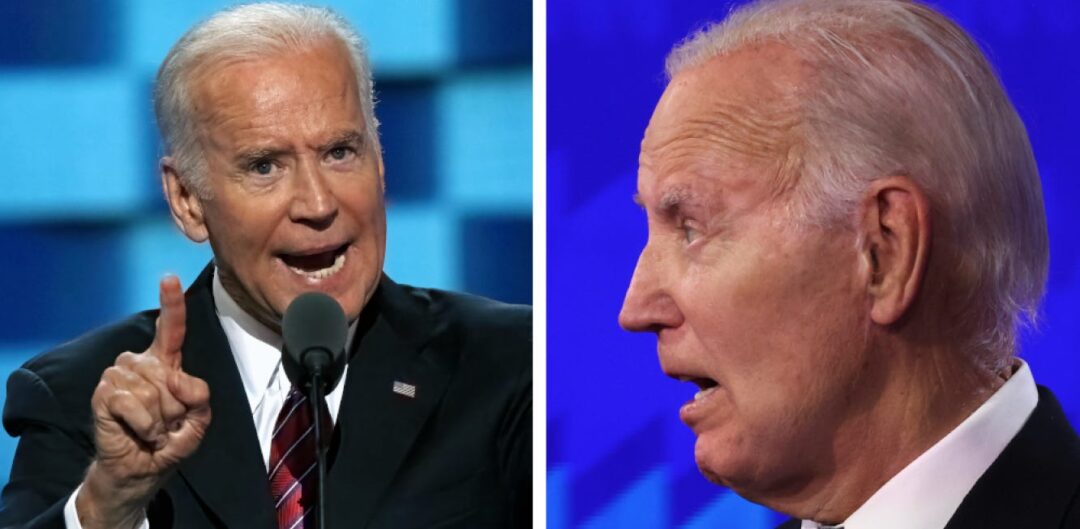
The two faces of Joe
When he took off those Ray-Bans, he’d either point an accusatory finger or stare in horror, like a man watching Predator take off its mask. What muted the effect on TV was that Biden was sailing through riffs delivered thousands of times. He’d visit campaign offices and talk to walls and floors about the “soul of the nation,” occasionally searching for a clock or an aide’s face. He had tricks. “We’re at an inflection point,” a riff used since the late 2000s and throughout his vice presidency, was a go-to verbal rest area, where he’d stop to find directions to a next memorized portion. Same with “trajectory of this country.” To gather himself, he’d entirely pronounce “The United States of America” or give a stat (“I’ll offer a 10% tax credit”). All politicians mail in Franken-speeches, but Biden was coping, not coasting. Press smoothed over his increasingly frequent panic attacks by describing ad-libbed interactions as “impassioned” or “fiery,” but by 2019-2020 Biden was essentially a human Speak & Spell rolled out for crowds.
Ironically, Biden’s two biggest flaws as a politician now became strengths. In real political terms he was a plodder, a ham & egger, who survived generations in America’s most thankless and disloyal business through his willingness to continually reinvent himself as situations (read: donors) demanded. He posed as for and against NAFTA, as both pro- and anti-busing, and for and against the Iraq war. It’s hard work going out there day after day, looking voters in the eye, and angrily insisting you haven’t just turned your face inside out for a donation or a Committee assignment. Biden was willing, which is why he always had sponsors.
The great break of his career came when David Plouffe, David Axelrod and Barack Obama settled on Delaware’s human micoraggression because he was an “older white running mate” who would “ease fears in battleground states like Pennsylvania, Michigan and Indiana,” as the New York Times put it. They picked Biden because he was a clod who blurted Archie Bunkerisms on the stump, the guy who in 2007 called Obama “the first sort of mainstream African-American who is articulate and bright and clean and a nice-looking guy.”
Biden, however, didn’t want to be a plodder. It should have been sufficiently inspiring that he overcame a terrible childhood stutter to become a serviceable professional politician, but he wanted to be remembered for brilliant speeches, even if he could neither write nor deliver them. There had to be a way, as explained in Franklin Foer’s The Last Politician: Inside Joe Biden’s White House and the Struggle for America’s Future, one of a handful of amusingly shameless authorized Biden bios. This section appears sourced to “aides” who heard Biden say of Obama and Bill Clinton, “If they could do this job, so could I,” and perhaps also to Mike Donilon, one of Biden’s main speechwriters:
As a young senator, [Biden] gave rousing addresses that aspired to the lush lyricism of the Kennedys, rife with verbal pyrotechnics, moments of soaring eloquence. They seemed a source of pride for him, evidence of how he mastered public speaking, the very thing that had once debilitated him. This desire to prove his eloquence landed him in trouble back in 1987. As he sought to transcend himself through oratory, he came to inhabit another man’s story. He inadvertently plagiarized sentences from the British politician Neil Kinnock, as if he were subconsciously confirming that there was something inauthentic about his grandiloquent style.”
Foer, who reported the infamous Alfa-Trump hoax, was for once in his life not entirely wrong. Obviously it’s absurd to claim Biden “inadvertently” plagiarized Kinnock’s speech, unless he also “inadvertently” took from JFK, RFK (senior), the Fordham Law Review, and a long list of other people and institutions over the years. What seems to be right is that Biden “came to inhabit” the realities of the people whose words he lifted. Decades after getting caught in the Kinnock episode he still referred to details from that speech (“No Biden I ever knew went to college” was an updated take). In other episodes he regularly changed details of false stories (the Navy/Army officer whom Biden awarded the Bronze/Silver Star after rappelling down a cliff/pulling soldiers from a burning Humvee evolved constantly, despite “my word as a Biden” that it was all true). Biden is tough to pin down on issues like his clear, documented, enthusiastic support for the Iraq war because he really seems to believe he opposed it “from the very beginning.”
Like many politicians Biden lied, but his lies were always complex and informed by delusion. This held him back when he was young enough for voters to judge him for being two-faced and conniving, when he was choosing which “transcendent oratory” he wanted to make his own. In 2020 his “gaffes” (misnamed, these were lies/delusions) gave him an air of authenticity that set him apart from Kamala, Kirsten, Beto, Eric, Amy, Drake, Shakira, Mayor Pete and the rest of the one-name performers the party clearly wanted to win who were younger, less white-and-male, and regularly showered with MSNBC tongue-baths and beatific magazine covers. Biden easily disposed of these mannequins, stumbling only with Bernie Sanders, who would have won had Barack Obama not marched Biden’s rivals into line behind him before Super Tuesday, 2020.
It was perfect. Biden’s mind by the end of the 2020 primary was mostly gone, and Covid allowed him to “campaign” from home during the general. Instead of the infamous fabulist purloining material on his own, now someone else (or even better, a group of someones) more skilled at national politics could do it. Joe was born with the replicant-like ability to convince audiences he always believed positions first adopted minutes ago, or that some other politician’s story from a book constituted his own real memories. Being a ventriloquist’s dummy for unscrupulous campaign aides was a step up, truthwise.
The man who opposed busing so his kids wouldn’t “grow up in a racial jungle” now became a radical chic spokesmodel who gave self-flagellating campaign speeches at the Russian tea room about how America is “a white man’s culture” that’s “got to change.” He’d have sold the line just as hard if told he had to announce new gravity rations for asteroid belt workers. The puppet act was hilariously undisguised. “Am I supposed to speak now?” he’d ask, in joint appearances with wife Jill. He made off-the-cuff (and little-reported) remarks about messages Jill taped to his shaving mirror “to get meh meh message her messages to me.” Democratic operatives even leaned into the idea of a “Dementia campaign,” pitting what Marc Caputo called a “nice old man with Alzheimer’s [Biden] against a mean guy with dementia [Trump].”
That Trump calling Bibi Netanyahu “Betanyahu” was not in the same universe of disturbing as Biden poking town hall attendees, challenging people to pushup contests, and repeatedly forgetting what state he was in, didn’t matter. This was the best Biden. On his own, Joe never sniffed a delegate in a presidential race. As a vegetable with no free will, he cruised into power, crushing Sanders and beating Obama’s popular vote record by a not-at-all-suspicious 11 million votes.
The real mystery didn’t begin until after the election. It’s one thing to prop up a corpse for a presidential campaign, really a big commercial. It’s especially simplified when you can shoot the whole general election run from a basement studio. But a president makes policy decisions every minute, staffs huge bureaucracies, signs piles of documents, travels on Air Force One, receives heads of state, assassinates, undermines, terrifies, reassures. Or at least, he or she should be able to appear to do these things. It’s a much more elaborate illusion. That Biden’s handlers were able to convince most of the world to buy it for nearly four years is incredible.
Biden heading into his inauguration was already halfway a front, having spent eight years gobbling fish from Obama’s bucket. It’s no surprise that his three Vice Presidential Chiefs of Staff in Ron Klain, Bruce Reed, and Steve Richetti were re-recruited to play the roles of the royal doctors limiting access to King George. Biden’s guards proved more skilled than their British counterparts. Even Sir George Baker, one of King George’s doctors, managed to get a letter out in 1788 about the regent’s “agitation of spirits nearly bordering on delirium.”
But in an age when everything leaks, and even CIA chiefs write embarrassing tell-alls, not one detail escaped the Biden White House about how this Weekend at Bernie’s routine was managed. Nothing like an outside assessment of Biden’s condition reached the public until February 5, 2024, when Special Counsel Robert Hur released a report on Biden’s classified documents investigation that famously called him an “elderly man with a poor memory,” excluding him from prosecution on the grounds that he was “someone for whom many jurors will want to identify reasonable doubt.”
Later, Biden’s biggest supporters would almost to the last claim to have been ignorant all along of his condition. This was obviously silly. Biden from the moment of his inauguration was in figurative and at times literal freefall, somehow tumbling up airplane steps, getting TKO’ed by a bicycle, fighting a flagpole on the way to not greeting the Brazilian president, having a Leslie Nielsen-esque struggle with his jacket, forgetting within a second that he’d already shaken Chuck Schumer’s hand, losing his way offstage at the UN Assembly, faceplanting at the Air Force Academy, and nearly going ass-over-teakettle in Japan during a ceremony in which he bowed at the wrong time Inspector Clouseau-style, among many other things. He became the human embodiment of Chevy Chase’s Gerald Ford caricature, no matter how much the New York Times tried to argue Dana Carvey’s much gentler modern routine captured the “soul” of the man.
The game was up once a federal prosecutor like Hur essentially said Biden was (in a way, at least), not competent to stand trial. Still, the hide-the-ball scam through that moment was an awesome achievement, from an operational security perspective. Who’d really been “on guard” all that time?
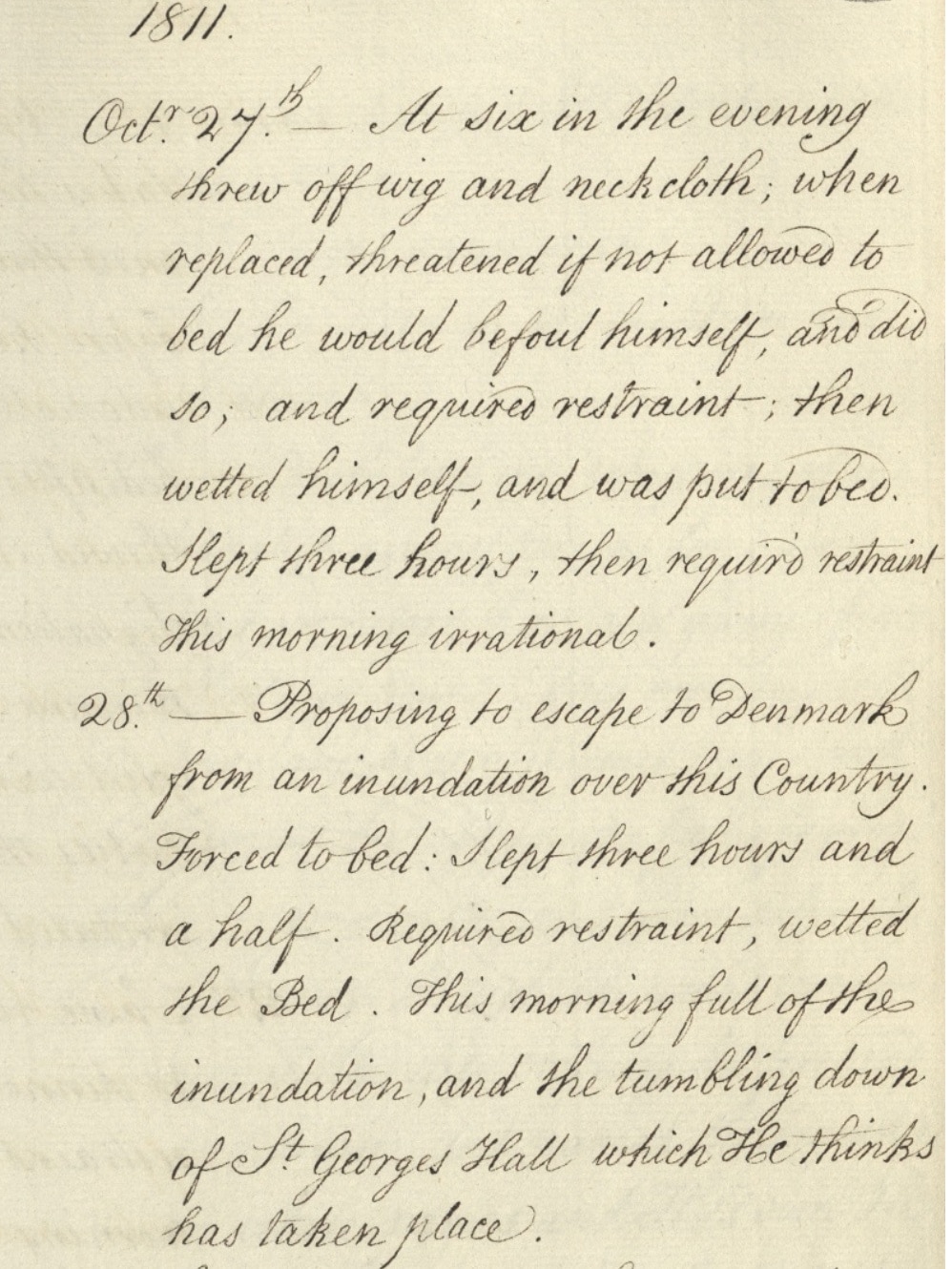
Most of what we “know” about the Biden presidency comes from a mix of vapid authorized accounts, the report by Hur, and the geyser of self-serving leaks that exploded out of the West Wing in the weeks after Biden’s catastrophic debate with Donald Trump last summer.
Chris Whipple’s The Fight of His Life: Inside the Biden White House would be the most shameless stroke job in the annals of White House hagiography, except it’s outdone by the Foer book. Both are largely told through the same sources, a feature of the period. When you wanted to read about Joe Biden’s thinking or private concerns, the same small group of people has been “relaying” the information since the 2021 Inauguration.
Whipple claimed a “troika” of key officials sat at the top: Chief of Staff Ron Klain, Counselor Steve Richetti, and senior advisor Mike Donilon. “If you wanted to know what Biden thought about anything,” Whipple wrote, “you could just ask Donilon.” Whipple’s next tier included PR “expert” Anita Dunn, deputy chiefs of staff Reed and Jen O’Malley Dillon, and senior advisor Cedric Richmond. Foer seemed to introduce sources by importance: first Klain, then Donilon, O’Malley Dillon, Jen Psaki, and Jake Sullivan, before introducing the first outside-the-White-House voice, Nancy Pelosi.
The New York Times in 2024 put Donilon, Klain, and former fellow Delaware Senator Ted Kaufman in “the core of Biden’s Brain Trust.” (I don’t think this is right. The few Biden reporters I know considered Kaufman the most quotable source on Biden, but not really in the loop.) In 2021, before “loyalist” became a pejorative synonym for “good German in Donald Trump’s service”, the Times said Biden spent nights with four key loyalists: Donilon, Klain, Reed, and Richetti.

Most of these early “Inside the Worm-Eaten Recesses of Biden’s Brain” features focused on those four, with some variously adding Dunn, O’Malley Dillon, Richmond, Yale lawyer Stefanie Feldman, press chief Kate Bedingfield, and others. Whipple added Anthony Blinken was in “a different weight class” because he and Biden “finish each other’s sentences,” although Chuck Schumer (“We can almost finish each other’s sentences”) and Valerie Biden Owens (“They can almost finish each other’s sentences”) were also so described. Nearly all reports excluded Jill Biden, which seemed intentional and, later, important. None gave even passing mention to Barack Obama or figures in his current entourage.
A mathematical average of these authorized portraits of Biden’s team would result in an org chart looking something like this:
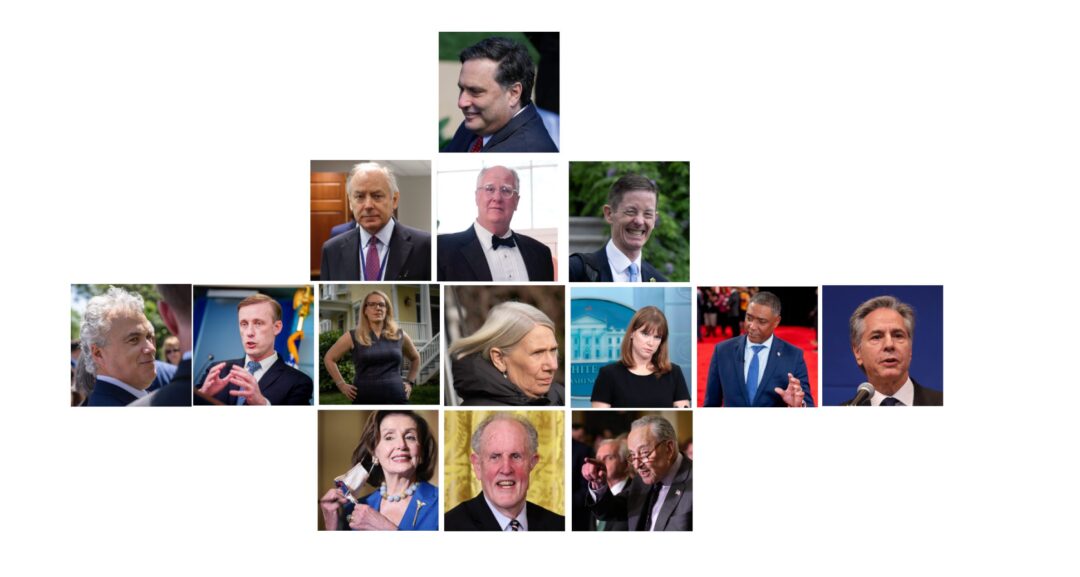
THE OSTENSIBLE “PRESIDENCY”: Top, Ron Klain. Second row, left to right: Steve Ricchetti, Mike Donilon, and Bruce Reed. Third row, left to right: Jeff Zients, Jake Sullivan, Jen O’Malley Dillon, a windswept Anita Dunn, disapproving Kate Bedingfield, Cedric Richmond, Anthony Blinken. Last row, left to right: Nancy Pelosi, Ted Kaufman, and Chuck Schumer
Klain from the start was consistently described as the central figure. In the nineties he was chief of staff for Vice President Al Gore, and at one time was in line to replace Rahm Emmanuel as chief of Obama’s White House, but had been with Biden for so much of the last four decades they were “like an old married couple,” according to Foer. A lot of the features about “Biden’s” White House, especially early on, were sourced to Klain. Good at staying out of the limelight, the only things most people knew about Klain is that he wore an oversized Covid mask that appeared designed by Nike and was a master of the on-the-record protestation of modesty.
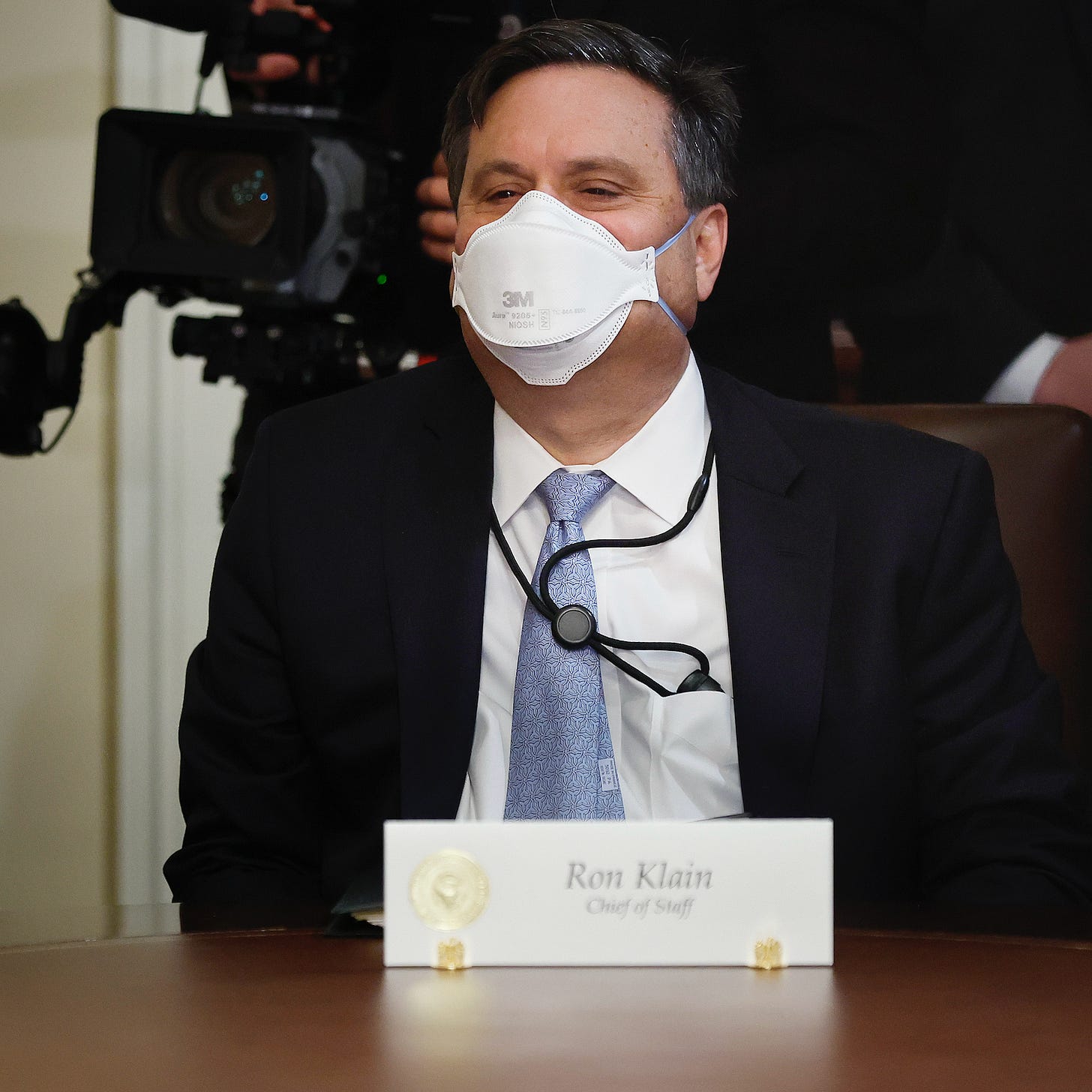
An influential 2021 New York Times feature by Mark Leibovich called “The Ascension of Ron Klain” announced “Mr. Klain is an unquestioned man to see in the current White House,” the “most influential chief of staff of recent vintage,” “viewed in and out of the West Wing as the essential conductor of administration business,” and most importantly, the “essential nerve center of an over-circuited administration whose day-to-day doings reflect how this White House works and what it aspires to.”
Klain negotiated with Republican congressional leaders, flanked Biden at Cabinet meetings, gave on-air previews of State of the Union addresses, and occasionally hinted at influence over Biden’s schedule, for instance saying the boss had done “probably too many” infrastructure speeches and should focus on the economy, where he’s “at his best.” From the outside it appeared Klain was the person who collected outside input, went into the Oval office, then emerged with Biden’s “decisions.”
Nonetheless, when Republicans began nicknaming Klain the “Prime Minister,” the likely most powerful man in Washington objected, saying he was just “a staff person.” It’s hilarious to look back at these strategic puff denials. Leibovich gushed that Klain had a “mind-meld” with Biden, describing him as almost an “alter ego” who could “lead the White House” and “spoke for the President” and was not just a “microcosm into how the Biden White House works,” but a “manager” who “keeps the trains running on time” and is “really the chief orchestrator.”
But when former NSC and White House official-turned-MSNBC contributor Elise Jordan brought up the Republicans’ “Prime Minister” moniker, and asked if it was really Klain’s “competence” that is “such a threat,” Leibovich suddenly pivoted. He dismissed as ridiculous the notion that the unelected Klain was piloting Biden’s presidency.
“It’s a trick,” he said of the Republicans’ nickname, highlighting the false notion that Biden is “not really in control and is being led by this man behind the curtain… I don’t think the Republicans really believe that.” Of course, in less than two years, even Democrats would admit to believing this.
The constant refrain of Democrats during the first few years of Biden’s presidency was that those pointing fingers at people like Klain were “disrespectfully infantilizing the president by suggesting that ‘Oh, he’s controlled by his chief of staff,’” as Bernie Sanders adviser Faiz Shakir put it.
Biden’s current and former staffers even this week are touting his administration’s accomplishments, among which they count the $1.9 trillion pandemic rescue plan, passage of the Inflation Reduction Act (which they say raised the floor on corporate taxes), the doling out of record numbers of emergency rental assistance payments (and encouraging what they say was a 17% rise in new housing), being the “most pro-labor” White House ever, and awarding “a record… $76.2 billion to small, disadvantaged businesses,” which they claim resulted in Black and Latino businesses growing at their “fastest pace in 30 years.”
If you recognize some of those highlights, it’s because Biden frequently mentioned them as he staggered toward his re-election campaign. He would often get the names and numbers wrong, not that his inner circle seemed to notice.
Even if all the claims Biden’s team made in his favor were true, they were doomed to be undone by the gigantic, conspicuous lie that Biden was well and making his own decisions. This unseemly truth was made more unavoidable by the galactic egotism of Biden’s team, which seemed sure of re-election and often brushed aside questions about Biden’s health by asking them to look at his “performance,” by which they of course meant their performance.
“Judge his record,” Klain snapped in 2023. “We have to judge him by what he’s done,” not his age, said Karine Jean-Pierre late that same year. A common assertion was that the public simply misunderstood how awesome of a president Biden had been, because of a communications problem his whiz-bang team would fix. “We’re looking for ways to make [his presidency] bite-sized and memorable,” said eventual White House comms director Ben LaBolt. One ominously cheeky New York Times article a year before the election (“For an Aging President, a Birthday With a Bite”) cited unnamed officials seething at news media for focusing on what they considered an irrelevant question:
Mr. Biden and his team have taken the approach that his record of domestic legislation and international leadership should belie any worries about his capacity…Nothing irritates White House officials more than discussion of Mr. Biden’s age, which they view as an obsession of the news media that does not correspond with the energetic and mentally sharp president they describe inside the Oval Office.
Aides throughout this period spent long hours telling reporters how smart they were while ignoring Biden’s decline. Anyone who doubts that faceless behind-the-scenes pols need regular massages need only read Foer’s introductory description of Klain:
While Biden proudly touted the fact that he went to a state school, he took pride in the Ivy Leaguers, like Klain, on his rosters. They were his meritocratic trophies — and Klain his eternal wunderkind, even as he neared sixty. Words streamed from Klain’s mouth in paragraph form. In a frustrated mood, Biden sometimes posed questions for the purpose of testing his staff, to gauge its grasp of minutiae. Klain, who projected the confidence of a high school quiz bowl champion, almost always knew the answer.
Everyone got at least one deep-throat feature. The Times described Ricchetti’s “wise man” role, saying that “what sets Mr. Ricchetti apart from a dozen other Biden veterans in the president-elect’s inner circle is his Swiss Army-knife utility.” CNN profiled Klain’s successor, Jeff Zients, saying he was a “master implementor” with deep “technocratic skill.” In Donilon’s Times profile, David Axelrod gushed he was “a brilliant message strategist with a deep understanding of, and loyalty to, Joe Biden.” O’Malley Dillon was a “master,” declared Vanity Fair, above a defiant High Noon hands-on-hips portrait.
Of all these pauses to gaze in the mirror on the deck of the Titanic, none was more hilarious than the one involving Anita Dunn and her husband, presidential lawyer Bob Bauer. The pair were fawned over as the “ultimate power couple” for handling “the Biden team’s contact with the Justice Department” in the classified records case. This case of course was Biden’s undoing, since it spurred the release of Hur’s report, which let the screeching age-cat out of the bag. Yet the “city’s grande dame of public relations” and her “strategic leader” husband proudly mugged for NBC:
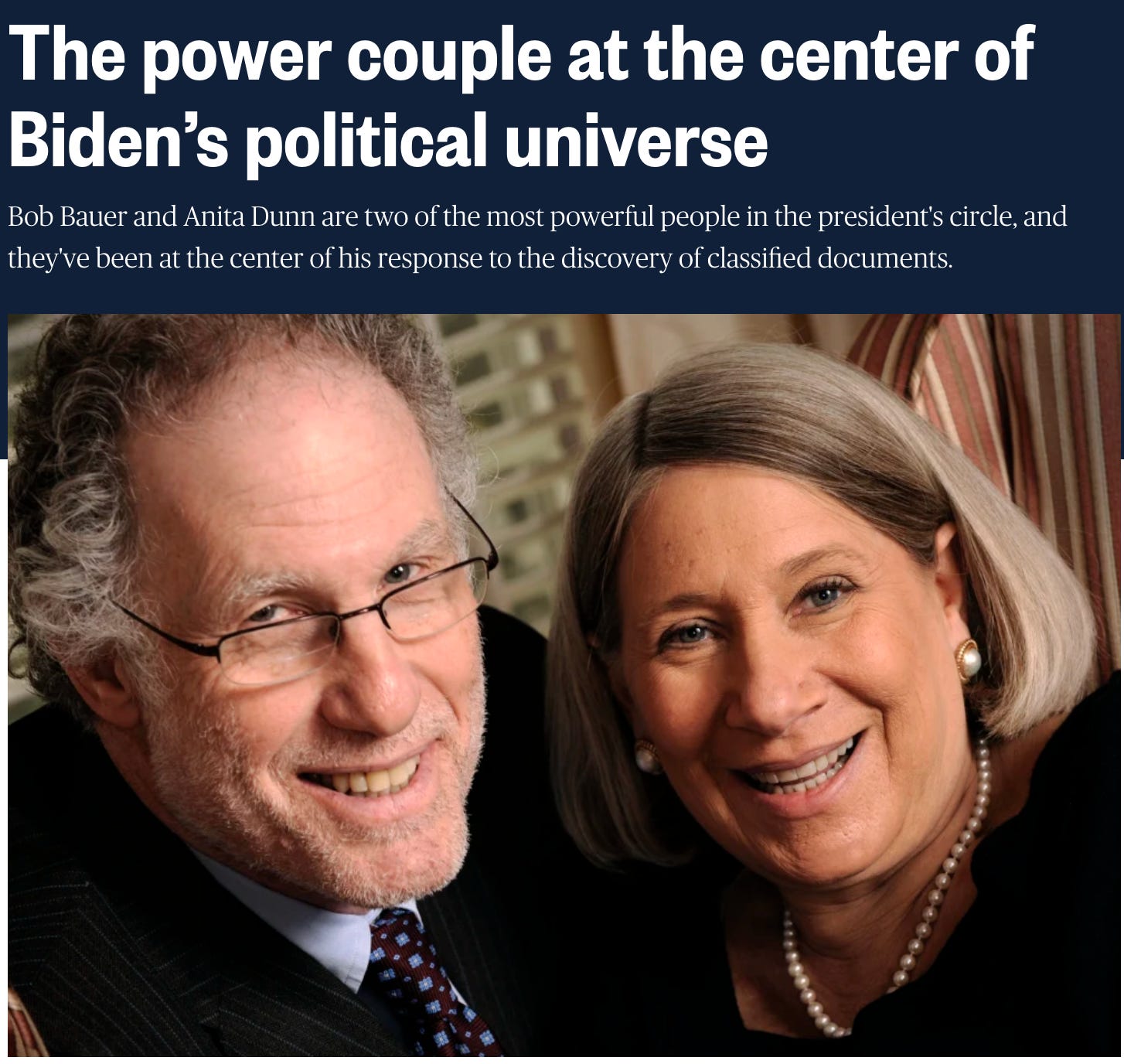
The ultimate power couple, who helped Biden onto the trash-fire of history
Once everything went to hell, and Biden was forced out by means of a still-mysterious process (if you believe the reports of Nancy Pelosi putting Donilon on the phone with Biden to make him see the polling light, or the idea that Biden’s exit was engineered over an Aspen weekend with George Clooney and Rob Reiner, I have a bridge to sell), all these people turned on one another.
A July Wall Street Journal article after Biden’s debate catastrophe cited “donors and lawmakers” as well as people “close to Biden” who blamed a “handful of advisers,” including Dunn, for “putting in place a strategy that minimized the president’s age-related struggles.” Translation: Dunn hid the Biden train wreck from the rest of us! The same article quoted donors who similarly blamed Hollywood big shot and campaign co-chair Jeffrey Katzenberg, who supposedly told them “that he saw the president regularly, and that Biden was sharp and in command.” None of them knew!
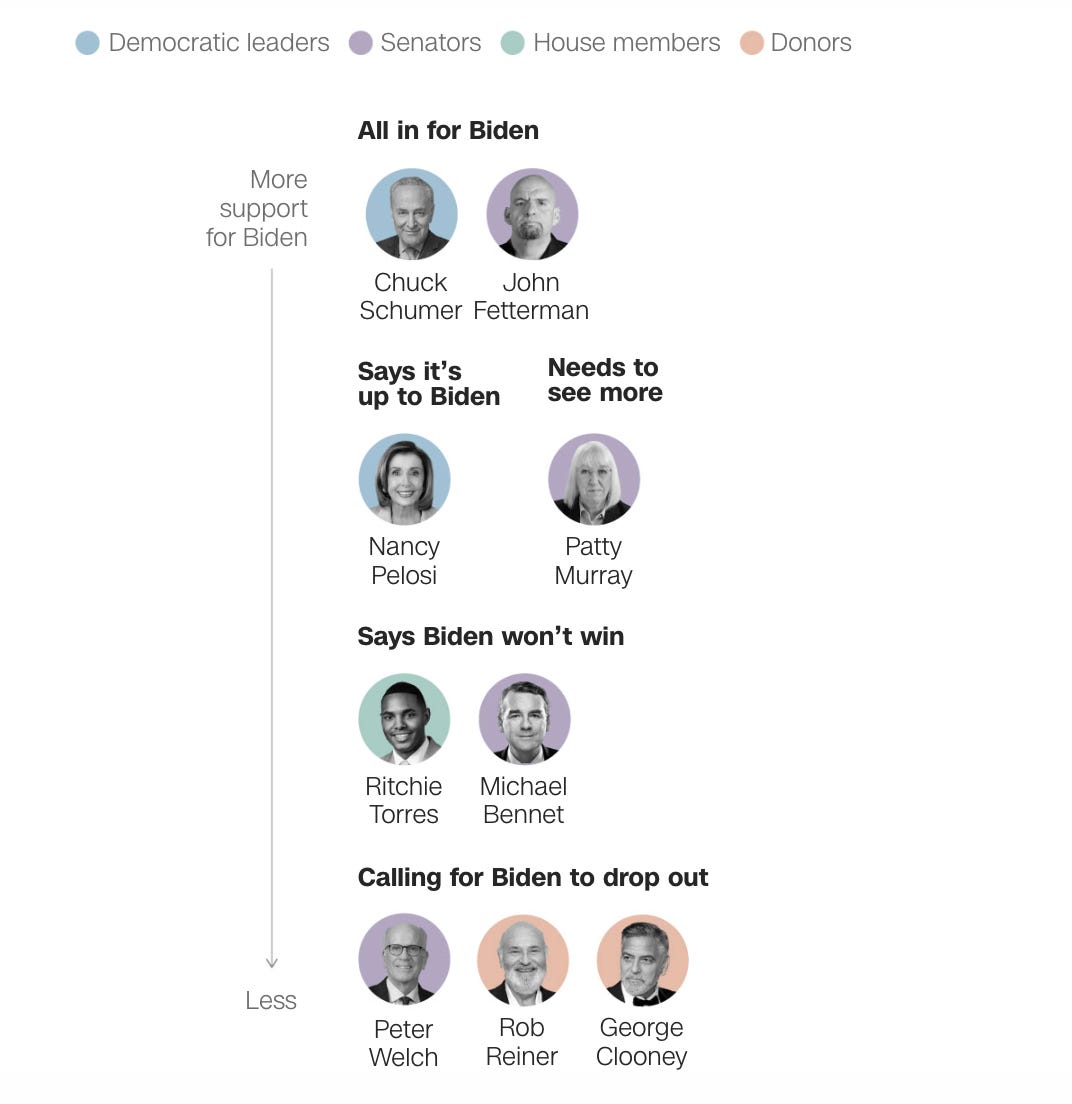
CNN’s representation of the key Democratic Party decision-makers as of July, 2024. Anyone missing?
From the moment he took office Biden’s pre-event coaching frequently leaked out, often from his own mouth (“To the blue marker… gotta take orders,” he said in Detroit). He read teleprompter instructions, leaving a long record of “I(state your name)”-type video follies, but that was in the best case. When he went off-script, anything was possible, which is why Psaki incredibly admitted, with regard to Biden taking impromptu questions, that “That is not something we recommend.”
Off-the-cuff Biden remarks led to a long list of “walk-backs,” which often made clear who was really running things. Some of the worst:
- Biden said he was willing to use force to defend Taiwan because “that’s the commitment we made,” after which defense Secretary Lloyd Austin rushed out to explain America’s China policy has “not changed”;
- Biden claimed that he saw pictures of “terrorists beheading children” in Gaza, followed quickly by a statement that “US officials and the president have not seen pictures or confirmed such reports”;
- Biden suggested he was in favor of holding a second election in Venezuela;
- Biden said of Vladimir Putin, “For God’s sake, this man cannot remain in power,” which forced the White House to “clarify” he didn’t mean “regime change.”
In the last case, White House officials let it leak that National Security Adviser Sullivan led a team that considered “letting Biden’s comments stand,” before issuing the “walk-back” 37 minutes later. Again incredibly, aides even leaked the fact that Biden himself was allowed to help “workshop” the walk-back, strongly suggesting this was a break from routine. Two days later, Biden took it back, saying, “I’m not walking back anything,” before remembering his place and adding he wasn’t advocating a policy change, just “expressing the moral outrage that I feel.”
This episode was one of many that made it clear that Joe Biden and “the Presidency” were separate entities, from which it can be deduced that the whole surface operation of the Biden presidency was probably a crime scene.
Years ago Republican Congressman Tom Graves wondered about the legality of the “autopen,” a mass-signing machine first used by the Obama administration, though George W. Bush created the mechanism. When Obama approved an extension of the PATRIOT Act, for instance, he “directed the use of the autopen to sign it,” putting a staff secretary in charge of his signature. Though Biden’s use of the tool was said to be rare, the larger problem is the competency issue exposed by Hur’s report and episodes like the “walk-backs.” There’s abundant evidence Joe Biden either couldn’t or didn’t have much of a say in thousands of documents bearing his signature, to say nothing of his removal from the 2024 ticket. Was he capable of giving a machine or anyone else signing authority?
The Putin “walk back” happened in May, 2022, when Biden hadn’t yet sunk below 40% approval ratings and advertising to the world that the president was not really in charge was the White House aide’s version of a humble-brag. Even after the Hur report came out, instructions from “the Presidency” seemed clear. White House allies were to continue pretending the sundowning leader was in “the best shape of his life” (to use the spring training cliché). A classic example was Biden’s last State of the Union address, an oratorial Deepwater Horizon unanimously declared to be Biden at his “fiery” best, as the inimitable Matt Orfalea documented:
There are many reasons to resist sympathy for Joe Biden, but it’s clear he never had a presidency. We can deduce that Klain, Zients, O’Malley Dillon, Dunn, Ricchetti, Reed and others seen by his side managed the physical process of his puppeteering, but as of today, next to nothing is known about offscreen characters who perhaps had greater final power in his term.
It seems possible the advertised “braintrust” had leeway to make policy choices, up to a point. Klain for instance seems significantly responsible for the too-online-wokester quotient in the Biden presidency, trying to name pestilent Internet creature Neera Tanden to head the OMB. Having been “Ebola Czar” under Obama, he also seems to have been the force behind the push for mandates and the generally hyper-obnoxious tone of White House vaccine policy, appearing to physically arouse Chuck Todd when discussing vaccines during the peak of the pandemic.
On larger questions, it’s not clear Klain figured at all. Responding to criticisms that he let a helpless outpatient sink the 2024 ticket, Klain blamed voters. “There was no cover-up,” he just told The Guardian. “A Democratic congressman ran against him in the primary in 2024, with age as the only issue, and voters overwhelmingly voted for Biden.” This was after the party barred the congressman in question, Dean Phillips, from its numerous closed primaries and spent small fortunes on legal challenges to keep other candidates like Robert F. Kennedy, Jr., Cornel West, Jill Stein, and the No Labels party from opposing Biden.
These are the key questions. Who fixed the primaries, directed the ballot access suits, crushed third parties, and green-lit myriad Trump prosecutions and other lawfare schemes? Most importantly, who kicked Biden off the ticket and replaced him with Kamala Harris? There’s not a lot of evidence that either Biden or Harris had much to do with those decisions. Jill Biden noted recently that “Joe has an incredible capacity to forgive,” but “that means I end up being the holder of grudges,” a remark seemingly directed toward Pelosi. As the Washington Post just put it, in a story that is about Jill Biden’s memories of last summer yet somehow completely avoids explaining who decided her husband’s career was over during that time:
“It’s up to the president to decide if he is going to run,” Pelosi said, even though Biden had already decided that he was staying in the race.
“Like I said,” Jill says now, seated in the Green Room of the White House on the first Sunday of January, “I’ve been thinking a lot about relationships.”
It’s not obvious even Jill Biden knows who made the call.
The White House has always been surrounded by powerful financial and political interests who influenced decisions, but we’ve never experienced a situation where the nominal president of the United States had no power at all, or next to none. That just happened. Though the story ends Monday, it’s likely we’ll never find the lair of the Invisible President, which unless Trump really does turn into Hitler will go down as this generation’s supreme, if unpursued, political villain. What a story! And no one cares.


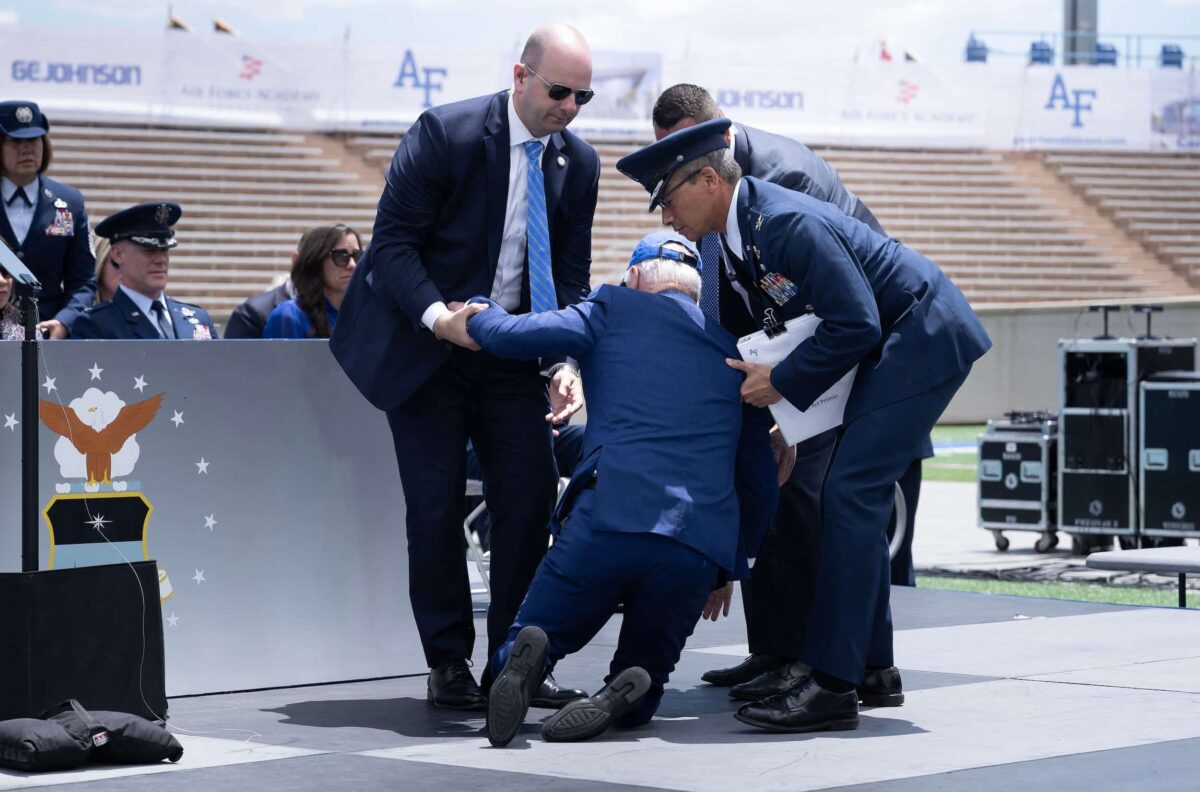
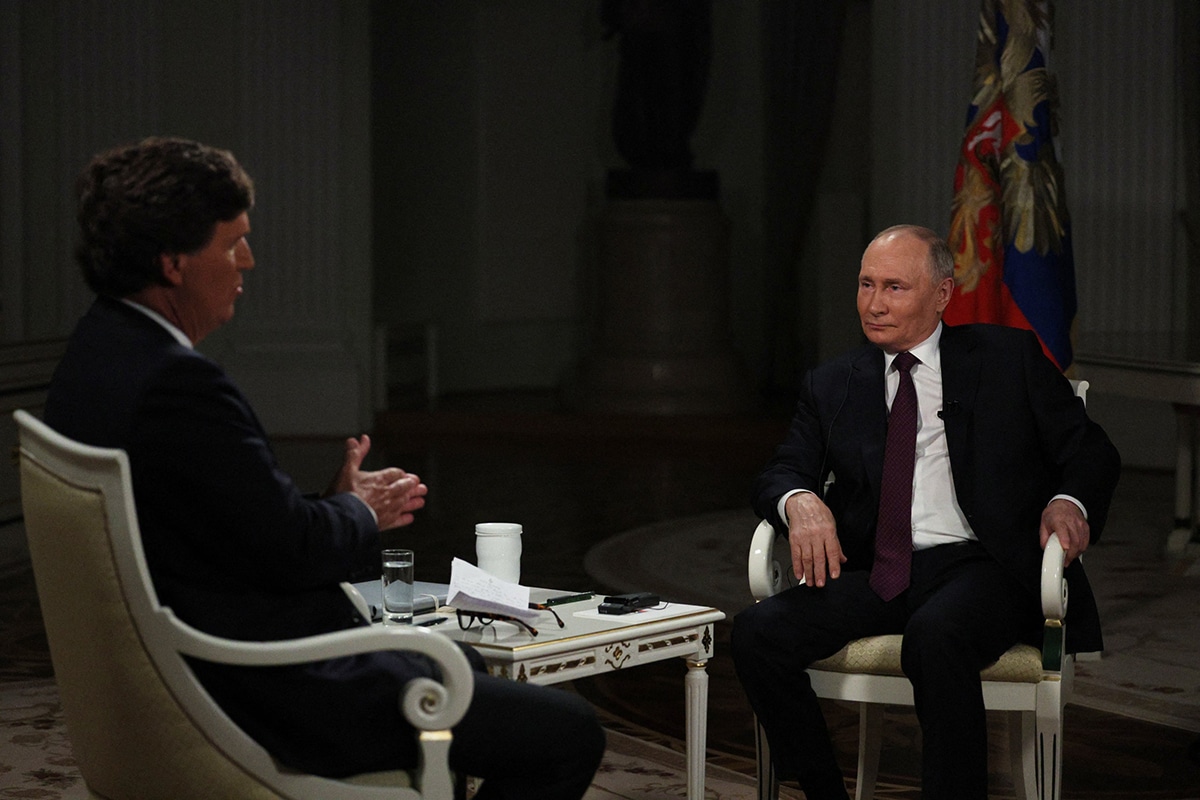
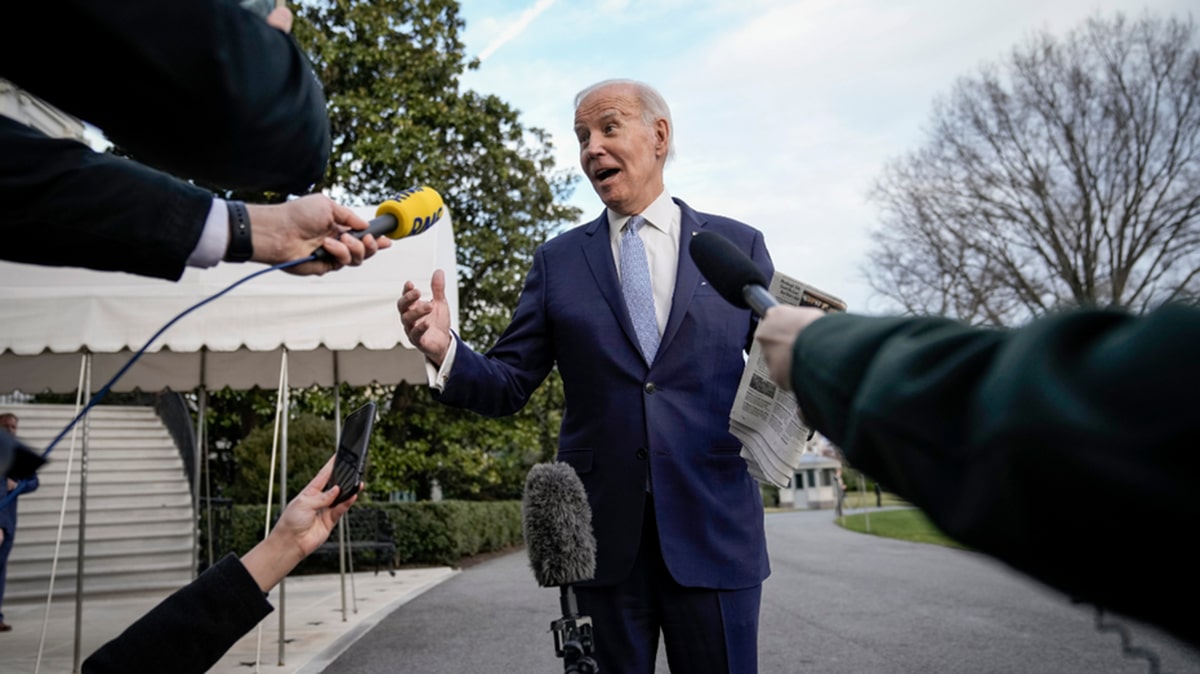
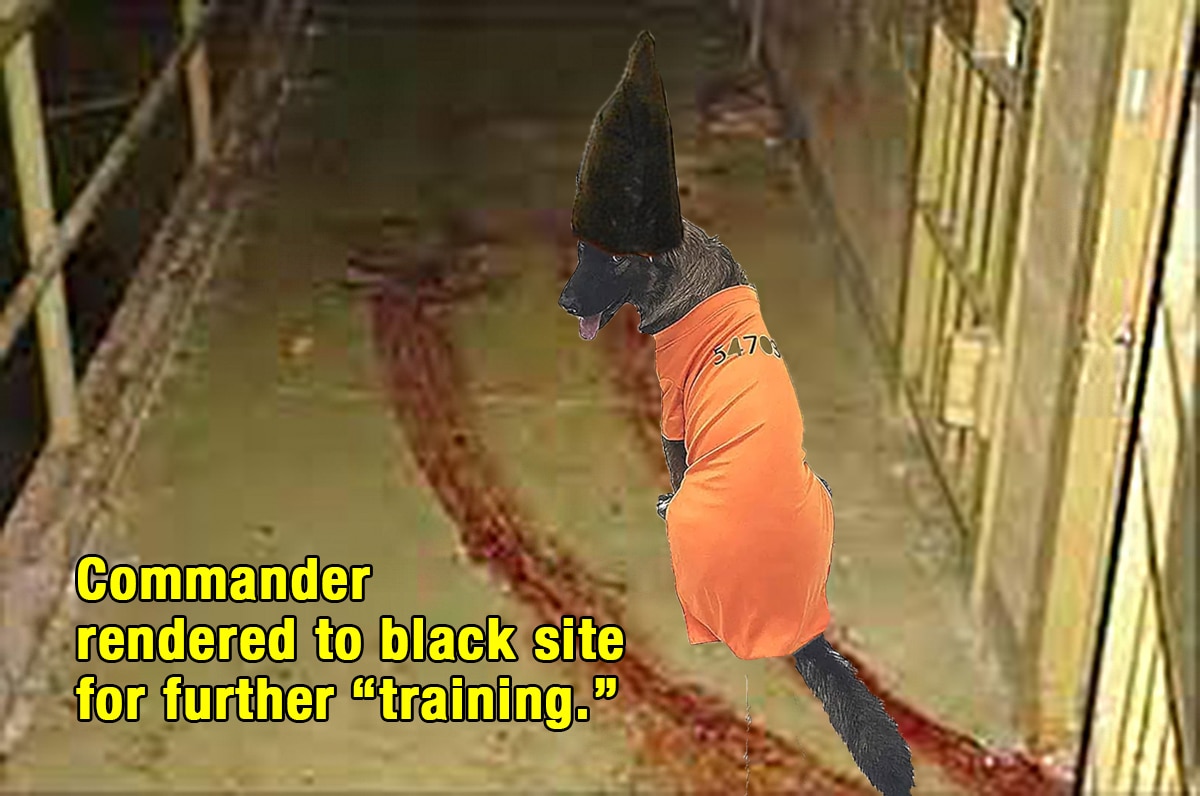

0 Comments